
Historic Charm and Vibrant Culture of Jonker Street
Jonker Street, located in the heart of Malacca, Malaysia, is a must-visit destination for tourists seeking a blend of history, culture, and excitement. Known for its lively atmosphere, Jonker Street is the place where the past meets the present, offering visitors a glimpse into the rich heritage of Malacca. The street is lined with beautifully preserved buildings, antique shops, and bustling markets, making it a perfect spot for history buffs and avid shoppers alike. One of the main attractions of Jonker Street is its vibrant night market, held every Friday and Saturday. This market is a sensory delight, with an array of stalls selling everything from local delicacies to handmade crafts. As you stroll through the market, you'll be treated to the sights and sounds of live performances, adding to the festive ambiance. Don't miss the chance to try some local street food, such as the famous chicken rice balls and mouth-watering cendol. During the day, Jonker Street offers a more laid-back experience. Take your time exploring the various museums, such as the Baba and Nyonya Heritage Museum, which provides an insightful look into the Peranakan culture. Art lovers will appreciate the numerous galleries showcasing local talent, while those interested in spirituality can visit the historic Cheng Hoon Teng Temple, the oldest functioning temple in Malaysia. Whether you're a history enthusiast, a foodie, or simply looking to soak in the local culture, Jonker Street has something for everyone.
Local tips in Jonker Street
- Visit on a Friday or Saturday night to experience the bustling night market.
- Don't miss trying the local street food, especially the chicken rice balls and cendol.
- Take a guided tour of the Baba and Nyonya Heritage Museum for a deeper understanding of Peranakan culture.
- Wear comfortable shoes as you'll be walking a lot, especially during the night market.
- Bring cash, as many stalls at the night market do not accept credit cards.
Historic Charm and Vibrant Culture of Jonker Street
Jonker Street, located in the heart of Malacca, Malaysia, is a must-visit destination for tourists seeking a blend of history, culture, and excitement. Known for its lively atmosphere, Jonker Street is the place where the past meets the present, offering visitors a glimpse into the rich heritage of Malacca. The street is lined with beautifully preserved buildings, antique shops, and bustling markets, making it a perfect spot for history buffs and avid shoppers alike. One of the main attractions of Jonker Street is its vibrant night market, held every Friday and Saturday. This market is a sensory delight, with an array of stalls selling everything from local delicacies to handmade crafts. As you stroll through the market, you'll be treated to the sights and sounds of live performances, adding to the festive ambiance. Don't miss the chance to try some local street food, such as the famous chicken rice balls and mouth-watering cendol. During the day, Jonker Street offers a more laid-back experience. Take your time exploring the various museums, such as the Baba and Nyonya Heritage Museum, which provides an insightful look into the Peranakan culture. Art lovers will appreciate the numerous galleries showcasing local talent, while those interested in spirituality can visit the historic Cheng Hoon Teng Temple, the oldest functioning temple in Malaysia. Whether you're a history enthusiast, a foodie, or simply looking to soak in the local culture, Jonker Street has something for everyone.
Iconic landmarks you can’t miss
Jonker Street Night Market
Discover the vibrant flavors and rich culture of Malacca at the Jonker Street Night Market, a must-visit destination for every traveler.
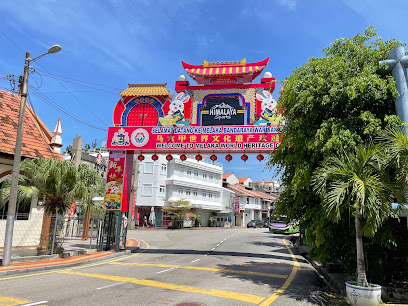
Dutch Square (Red Square) Melaka
Explore the vibrant Dutch Square in Melaka, a UNESCO Heritage site that showcases stunning colonial architecture and rich cultural history.
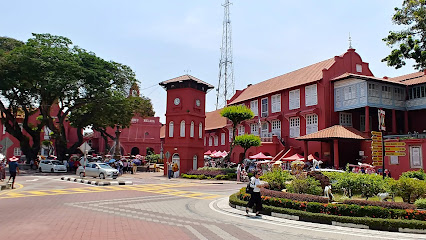
Jonker Walk Melaka
Explore Jonker Walk in Melaka for a vibrant mix of street food, unique souvenirs, and a taste of local culture in a historic setting.
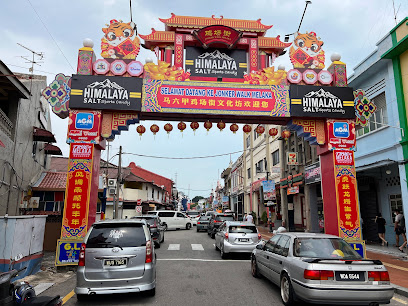
Jonker Walk World Heritage Park
Discover the cultural and natural beauty of Jonker Walk World Heritage Park, where history meets art in the heart of Melaka.
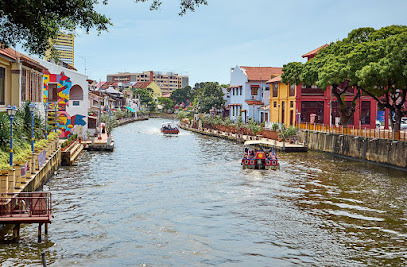
The Stadthuys
Discover the history and culture of Melaka at The Stadthuys, a remarkable museum showcasing Dutch colonial architecture and rich heritage.
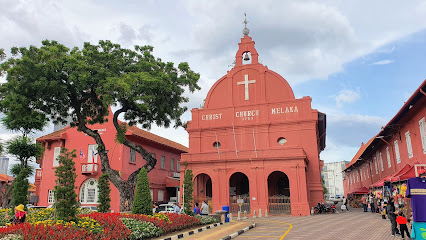
Hang Jebat Mausoleum
Discover the rich history of Melaka at the Hang Jebat Mausoleum, an essential landmark that honors a legendary warrior and offers a serene escape into the past.
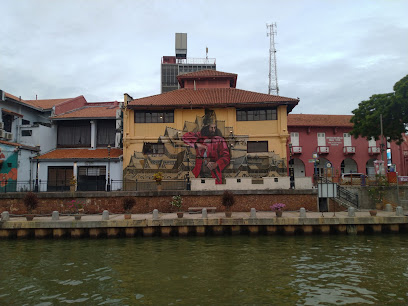
One You 3D Jonker Walk
Experience the magic of interactive 3D art at One You 3D Jonker Walk in Melaka, where creativity comes alive in a fun and engaging atmosphere.
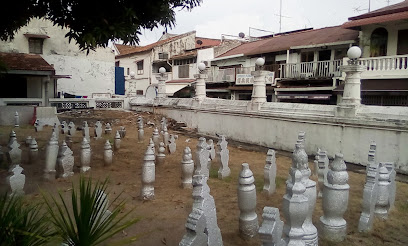
Taman Warisan Dunia Jonker Walk
Discover the cultural heritage and vibrant atmosphere of Taman Warisan Dunia Jonker Walk in the heart of Melaka, Malaysia.
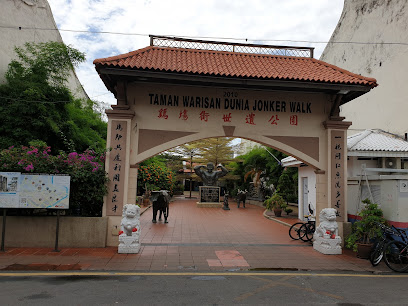
Malacca Heritage Centre
Explore the Malacca Heritage Centre and unravel the rich cultural history of this UNESCO World Heritage site through engaging exhibits and artifacts.
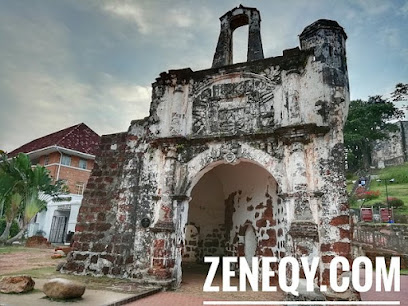
Ruined Wall near Middelburgh Bastion
Discover the Ruined Wall near Middelburgh Bastion in Malacca, a historical landmark that echoes the rich heritage of colonial architecture and history.
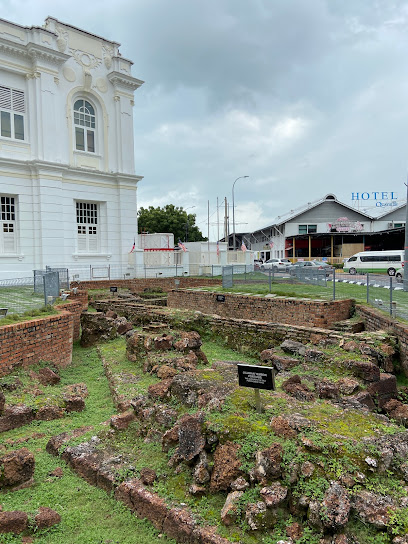
Unmissable attractions to see
Jonker Street Night Market
Explore the vibrant Jonker Street Night Market in Melaka, where delicious street food, unique crafts, and rich culture come together in a lively atmosphere.
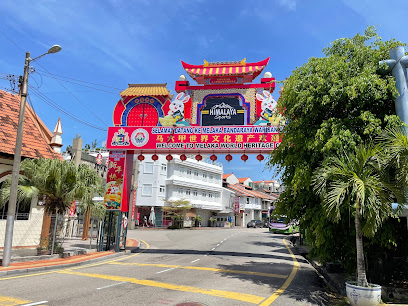
Taming Sari Tower (Malacca Tower)
Discover Malacca's breathtaking vistas from Taming Sari Tower, where history and modernity meet in stunning panoramic views.
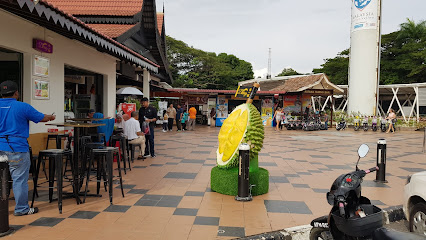
Jonker Walk World Heritage Park
Explore the vibrant Jonker Walk World Heritage Park, a cultural gem in Melaka filled with history, delicious street food, and beautiful landscapes.
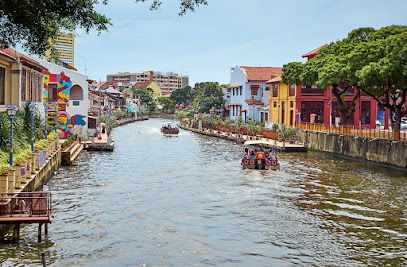
The Stadthuys
Discover the rich heritage of Melaka at The Stadthuys, a stunning landmark showcasing colonial architecture and captivating history.
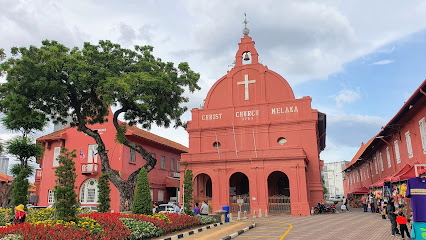
Queen Victoria's Fountain
Discover the historical elegance of Queen Victoria's Fountain in Melaka, a stunning tribute to colonial heritage amidst lush gardens.
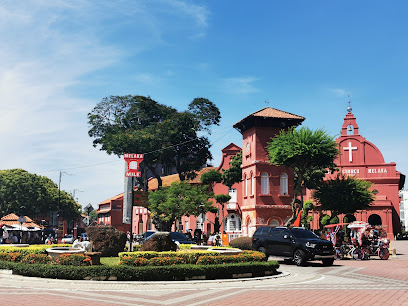
Melaka 3D Street Art艺术街
Explore the enchanting Melaka 3D Street Art, where vibrant murals transform the streets into a captivating open-air gallery.
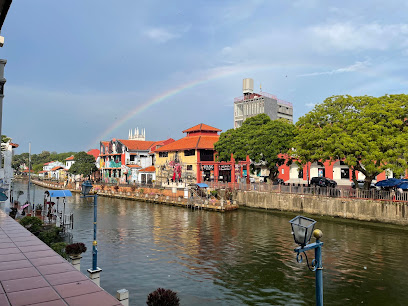
One You 3D Jonker Walk
Experience the magic of art at One You 3D Jonker Walk, where creativity and imagination come to life through stunning optical illusions.
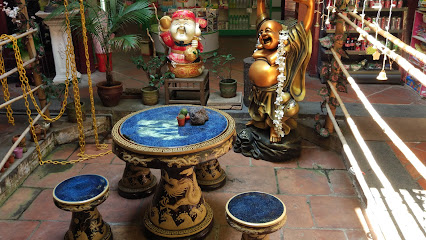
Taman Warisan Dunia Jonker Walk
Discover the vibrant culture and rich history at Taman Warisan Dunia Jonker Walk, a must-visit UNESCO World Heritage Site in Melaka.
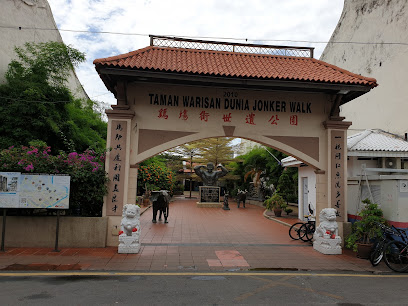
Essential places to dine
Hard Rock Cafe Melaka
Discover delicious American cuisine amidst iconic rock memorabilia at Hard Rock Cafe Melaka – where every meal is a celebration.
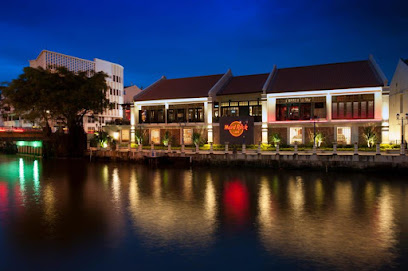
GravyBaby Melaka at Jonker Street
Discover the culinary treasures at GravyBaby Melaka on Jonker Street - where tradition meets modern dining in a vibrant atmosphere.
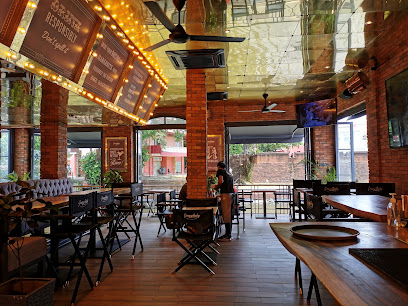
The Baboon House
Experience unique decor and delightful dishes at The Baboon House in Melaka - a must-visit restaurant for food lovers.
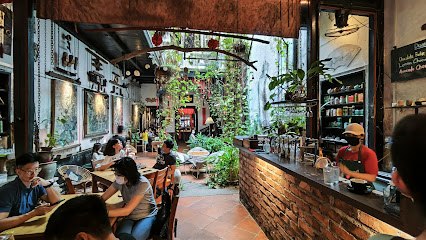
Wild Coriander Melaka
Experience authentic Malay cuisine at Wild Coriander Melaka, where tradition meets modernity in every delicious dish.
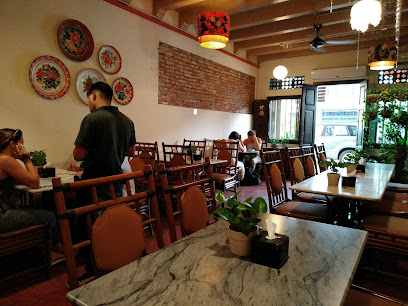
Famosa Chicken Rice Ball
Experience authentic Malaysian cuisine at Famosa Chicken Rice Ball in Malacca – home of the iconic chicken rice ball dish!
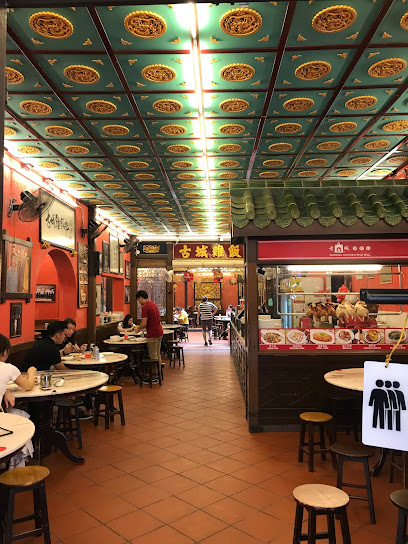
Famosa Chicken Rice Ball - Jonker Street
Experience authentic Malaysian cuisine at Famosa Chicken Rice Ball on Jonker Street – where tradition meets flavor in every bite.

Kedai Kopi Chung Wah
Savor authentic Chinese cuisine at Kedai Kopi Chung Wah in Melaka, renowned for its delectable chicken rice balls and vibrant atmosphere.
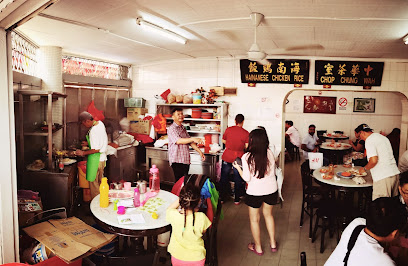
Melting Pot Cafe
Discover unique flavors at Melting Pot Cafe in historic Melaka—where local traditions meet international cuisine.
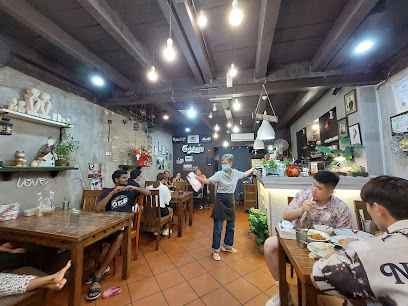
Eleven Bistro & Restaurant
Experience authentic Portuguese flavors at Eleven Bistro & Restaurant in Melaka's vibrant Jonker Walk - A culinary journey awaits!
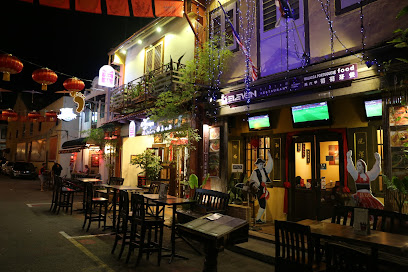
BEHIND THE DOOR CAFE
Discover Behind The Door Cafe in Melaka: A cozy Asian fusion eatery offering delectable dishes amidst the vibrant Jonker Walk atmosphere.
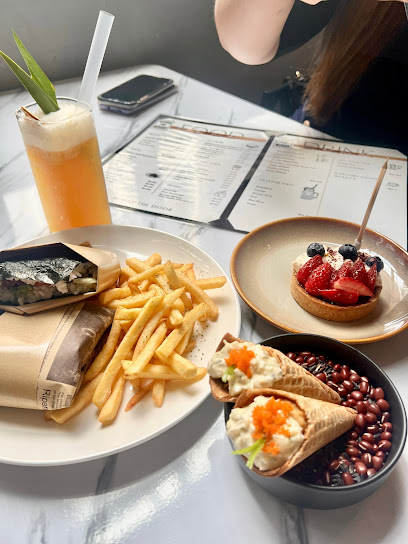
Markets, malls and hidden boutiques
Jonker Gallery (留念精品店)
Explore the vibrant Jonker Gallery in Melaka, offering unique souvenirs and local crafts that capture the essence of your travel experience.
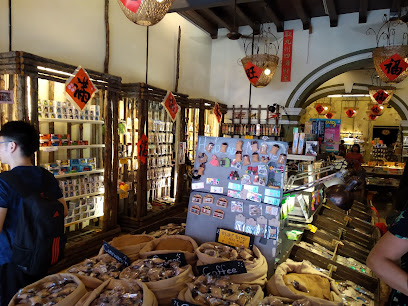
LULALA Melaka Jonker Street 噜啦啦
Discover unique souvenirs and local crafts at LULALA Melaka Jonker Street, a vibrant shopping experience in the heart of Melaka.
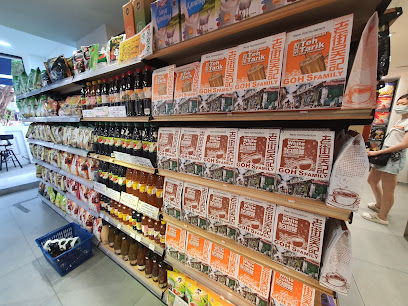
Ancient Curio Store
Explore the Ancient Curio Store in Melaka, a treasure trove of unique antiques and collectibles reflecting Malaysia's rich history.
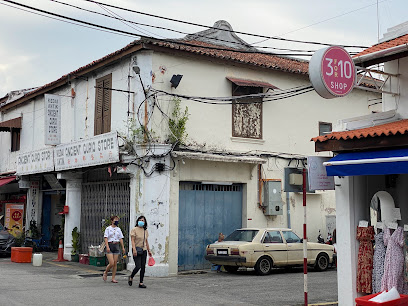
Ban Heang Melaka Jongker Street
Explore Ban Heang Melaka Jongker Street for authentic souvenirs that capture the essence of Melaka's rich culture and heritage.
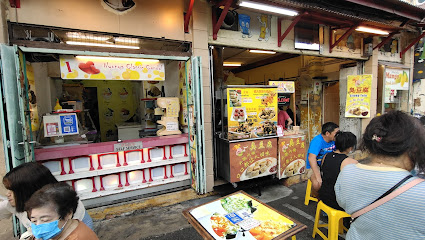
Miniso @ Jonker Walk Street 鸡场街
Explore Miniso at Jonker Walk Street for unique gifts, trendy gadgets, and affordable treasures in Melaka's vibrant market.
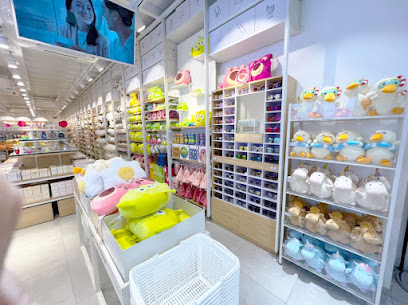
Jonker Craft
Explore Jonker Craft in Melaka for unique handcrafted souvenirs that capture the spirit of Malaysian culture and artistry.
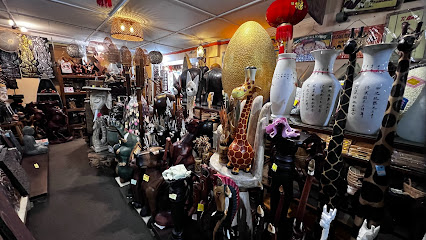
Rasa Sayang Galeri
Explore Rasa Sayang Galeri, a boutique in Malacca showcasing local craftsmanship and culture on the vibrant Jonker Street.
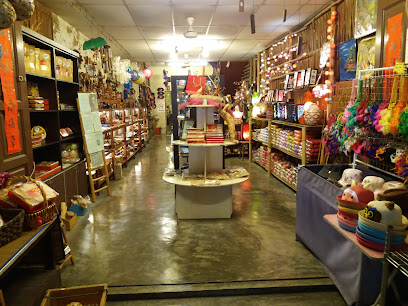
Nirvana Collection at Jonker (Alice)
Discover unique fashion blends at Nirvana Collection in Jonker, Melaka – a must-visit for style seekers and culture lovers.
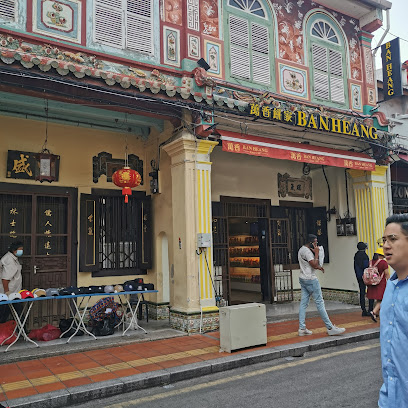
Meizy
Explore Meizy, Melaka's enchanting souvenir store, offering unique local crafts and delicacies that capture the essence of this historic city.
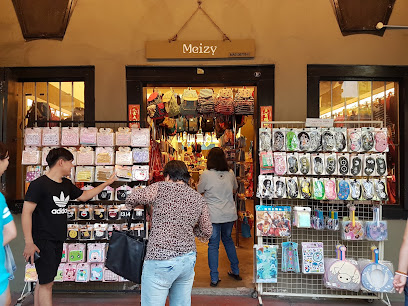
Jonker Art Collection
Explore Melaka's artistic heritage at Jonker Art Collection, a treasure trove of handcrafted souvenirs and unique gifts.
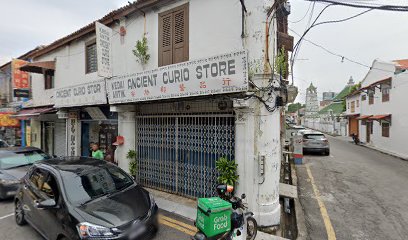
Essential bars & hidden hideouts
Tipsy Bridge
Discover the local nightlife at Tipsy Bridge, Melaka's charming bar with creative cocktails and live music in a vibrant setting.
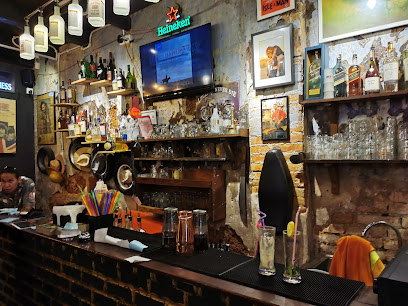
GravyBaby Melaka at Jonker Street
Discover GravyBaby Melaka: Where Culinary Delights Meet Lively Entertainment in the Heart of Jonker Street.
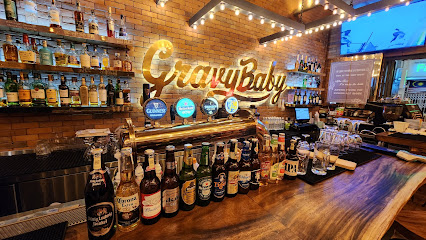
REGGAE ON THE RIVER MELAKA
Discover the rhythm of Melaka at Reggae on the River, where lively music and refreshing drinks create an unforgettable nightlife experience.
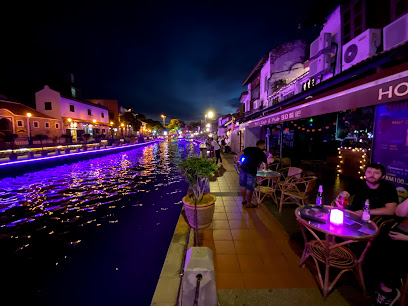
90 Riverside Cafe
Discover the vibrant atmosphere of 90 Riverside Café in Malacca, where delicious drinks meet stunning riverside views for an unforgettable experience.
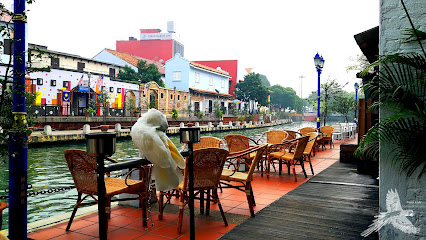
Sin Hiap Hin
Discover the charm of Sin Hiap Hin, a unique daytime bar in Malacca offering refreshing drinks and a cozy atmosphere.
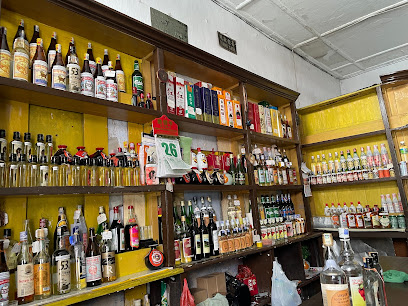
荷兰街贰号 The Holland 2street
Discover the vibrant nightlife of Malacca at The Holland 2street, your go-to bar for delightful drinks and a lively atmosphere.
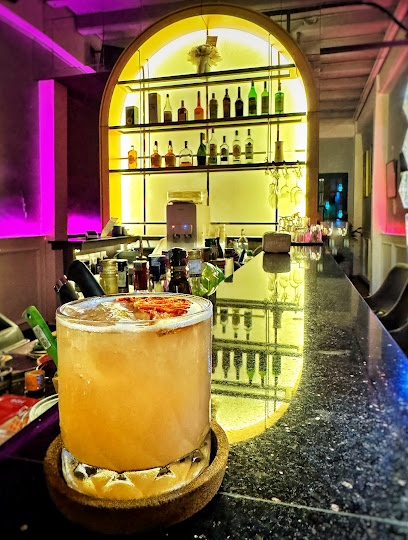
Purgatory
Experience the vibrant nightlife of Melaka at Purgatory, a bar offering exotic cocktails, live entertainment, and a welcoming atmosphere for all.
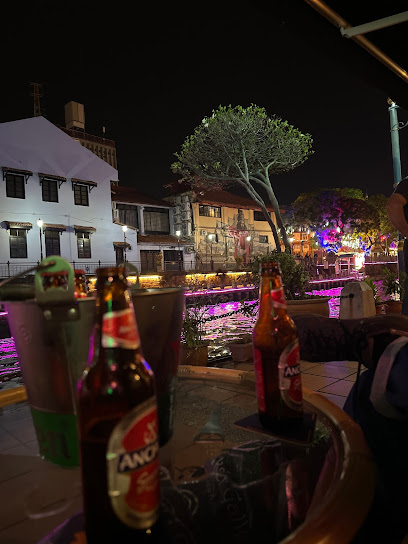
Jupiter Bar and Kitchen, Malacca
Discover the vibrant nightlife of Malacca at Jupiter Bar and Kitchen, where crafted cocktails meet delicious bites in a lively atmosphere.
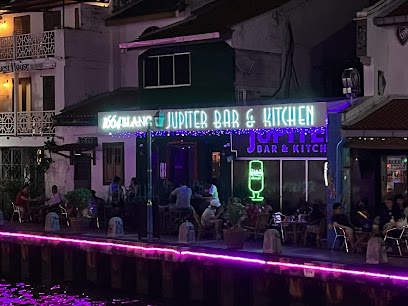
Ultimate Art & Culture Cafe
Experience the fusion of art and culture at the Ultimate Art & Culture Cafe in Melaka, where creativity and flavor come together.
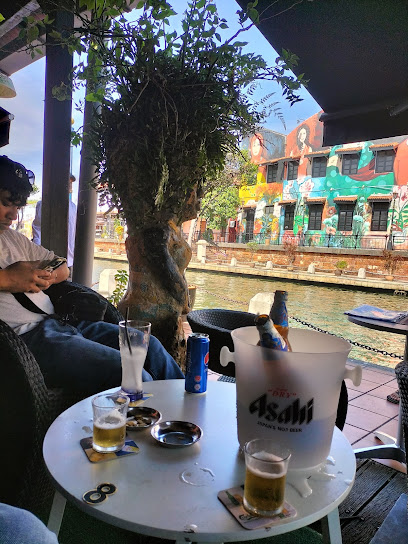
Craft Bier Shop in Jonker
Discover a unique selection of craft beers at Craft Bier Shop in Jonker, Melaka's vibrant destination for beer enthusiasts.
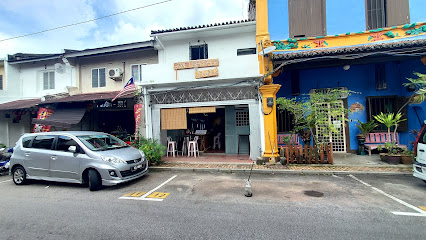
Local Phrases
-
- HelloApa khabar
[ah-pah kah-bahr] - GoodbyeSelamat tinggal
[suh-lah-maht ting-gahl] - YesYa
[yah] - NoTidak
[tee-dahk] - Please/You're welcomeSila
[see-lah] - Thank youTerima kasih
[teh-ree-mah kah-see] - Excuse me/SorryMaaf
[mah-ahf] - How are you?Apa khabar?
[ah-pah kah-bahr] - Fine. And you?Baik. Dan awak?
[bah-ee. dahn ah-wahk] - Do you speak English?Boleh bercakap Bahasa Inggeris?
[boh-leh buhr-chah-kahp bah-hah-sah ing-gehr-iss] - I don't understandSaya tidak faham
[sah-yah tee-dahk fah-hahm]
- HelloApa khabar
-
- I'd like to see the menu, pleaseBoleh saya lihat menu?
[boh-leh sah-yah lee-haht meh-noo] - I don't eat meatSaya tidak makan daging
[sah-yah tee-dahk mah-kahn dah-yihng] - Cheers!Kampai!
[kam-pie] - I would like to pay, pleaseBoleh saya bayar?
[boh-leh sah-yah bah-yahr]
- I'd like to see the menu, pleaseBoleh saya lihat menu?
-
- Help!Tolong!
[toh-lohng] - Go away!Pergi jauh-jauh!
[pehr-gee jah-oo jah-oo] - Call the Police!Panggil polis!
[pahng-geel poh-lees] - Call a doctor!Panggil doktor!
[pahng-geel dohk-tohr] - I'm lostSaya sesat
[sah-yah suh-saht] - I'm illSaya sakit
[sah-yah sah-keet]
- Help!Tolong!
-
- I'd like to buy...Saya ingin membeli...
[sah-yah in-geen mem-buh-lee] - I'm just lookingSaya hanya tengok-tengok
[sah-yah hahn-yah tehn-gohk-tehn-gohk] - How much is it?Berapa harganya?
[buh-rah-pah hahr-gahn-yah] - That's too expensiveItu terlalu mahal
[ee-too tuhr-lah-loo mah-hahl] - Can you lower the price?Boleh kurangkan harga?
[boh-leh koo-rang-kahn hahr-gah]
- I'd like to buy...Saya ingin membeli...
-
- What time is it?Sekarang pukul berapa?
[suh-kah-rahng poo-kool buh-rah-pah] - It's one o'clockPukul satu
[poo-kool sah-too] - Half past (10)Pukul setengah (sepuluh)
[poo-kool suh-tuhn-gah (suh-poo-loo)] - MorningPagi
[pah-gee] - AfternoonPetang
[puh-tahng] - EveningMalam
[mah-lahm] - YesterdaySemalam
[suh-mah-lahm] - TodayHari ini
[hah-ree ee-nee] - TomorrowEsok
[eh-sohk] - 1Satu
[sah-too] - 2Dua
[doo-ah] - 3Tiga
[tee-gah] - 4Empat
[em-paht] - 5Lima
[lee-mah] - 6Enam
[eh-nahm] - 7Tujuh
[too-joo] - 8Lapan
[lah-pahn] - 9Sembilan
[suhm-bee-lahn] - 10Sepuluh
[suh-poo-loo]
- What time is it?Sekarang pukul berapa?
-
- Where's a/the...?Di manakah...
[dee mah-nah-kah] - What's the address?Apakah alamatnya?
[ah-pah-kah ah-lah-maht-nyah] - Can you show me (on the map)?Boleh tunjukkan saya (di peta)?
[boh-leh toon-jook-kahn sah-yah (dee peh-tah)] - When's the next (bus)?Bila bas seterusnya?
[bee-lah bahs suh-tuh-roos-nyah] - A ticket (to ....)Satu tiket (ke ....)
[sah-too tee-keht (keh ....)]
- Where's a/the...?Di manakah...
History of Jonker Street
-
Jonker Street, known locally as Jalan Hang Jebat, has its origins in the 15th century when Malacca was a thriving trading port. The street served as the hub for Chinese merchants and traders who settled in the area, establishing a vibrant community that contributed to the multicultural tapestry of Malacca. The architecture of Jonker Street reflects this rich heritage, with traditional shophouses showcasing unique Peranakan designs.
-
During the 16th and 17th centuries, Jonker Street witnessed significant European colonial influence, particularly from the Portuguese and Dutch. This period marked the introduction of new cultural elements, further enriching the local customs. The blending of Portuguese, Dutch, and Chinese cultures can still be observed in the local cuisine, festivals, and architecture, illustrating Malacca's status as a cultural melting pot.
-
In the late 20th century, Jonker Street transitioned from being primarily a residential area to a bustling market street, particularly known for its antique shops. The antique trade thrived in the 1980s and 1990s, attracting collectors and tourists alike. The street became famous for its unique offerings, ranging from vintage Chinese porcelain to colonial-era furniture, solidifying its reputation as a center for heritage and nostalgia.
-
In the early 2000s, the Jonker Walk Night Market was established, transforming Jonker Street into a vibrant evening destination. Every weekend, the street comes alive with stalls selling local food, handicrafts, and souvenirs. The night market not only supports local entrepreneurs but also showcases the culinary diversity of Malacca, with offerings that include Nyonya cuisine, street snacks, and traditional desserts.
-
Jonker Street is a focal point for numerous cultural festivals and events throughout the year, such as the Malacca River Festival and the Chinese New Year celebrations. These events highlight the area's rich traditions and the communal spirit of its inhabitants. The street's role in fostering cultural exchange and participation has made it a vital part of Malacca's identity.
Jonker Street Essentials
-
Jonker Street is located in the heart of Malacca's historical district. If you are coming from Malacca Sentral, the main bus terminal, you can take a local bus (Bus 17) directly to Jonker Street. Alternatively, taxis and ride-hailing services like Grab are readily available and provide a convenient option for reaching Jonker Street from other neighborhoods in Malacca.
-
Jonker Street is a pedestrian-friendly area, making it easy to explore on foot. Bicycles are also available for rent at various locations, allowing you to cover more ground while enjoying the sights. For longer distances, local taxis and Grab services are affordable and efficient.
-
Jonker Street is generally safe for tourists. However, standard precautions should be taken, especially in crowded areas. Be cautious of pickpockets and avoid displaying valuable items. While violent crime is rare, it's advisable to stay vigilant, especially in poorly lit areas at night. Avoid walking alone in less crowded side streets after dark.
-
In case of an emergency, dial 999 for immediate assistance. The nearest hospital is the Malacca General Hospital, located a short drive away. It's recommended to have travel insurance that covers health emergencies. For minor issues, local clinics and pharmacies can provide assistance.
-
Fashion: Do wear comfortable clothing suitable for warm weather; however, dress modestly when visiting religious sites. Don't wear revealing attire. Religion: Do respect local customs, especially when visiting temples and churches. Always dress appropriately. Public Transport: Do give up your seat for the elderly or disabled. Don't eat or drink in public transport. Greetings: Do greet locals with a smile and a polite nod. Don't be overly familiar; maintain a respectful distance. Eating & Drinking: Do try local street food and beverages. Don’t waste food or refuse food offerings, as this may be seen as disrespectful.
-
To experience Jonker Street like a local, visit early in the morning when the street is less crowded and you can enjoy breakfast at one of the local eateries. Don’t miss the night market on weekends, which offers a variety of street food and handicrafts. Engage with local vendors and ask for recommendations on their specialties. Additionally, take time to explore the side streets for hidden gems, such as quaint shops and traditional crafts.
Nearby Cities to Jonker Street
-
Things To Do in Kuala Lumpur
-
Things To Do in Johor Bahru
-
Things To Do in Jurong
-
Things To Do in Sembawang
-
Things To Do in Yishun
-
Things To Do in Bukit Timah
-
Things To Do in Singapore
-
Things To Do in Orchard Road
-
Things To Do in Little India
-
Things To Do in Clarke Quay
-
Things To Do in Bugis
-
Things To Do in Chinatown
-
Things To Do in Sentosa
-
Things To Do in Marina Bay
-
Things To Do in East Coast Park












